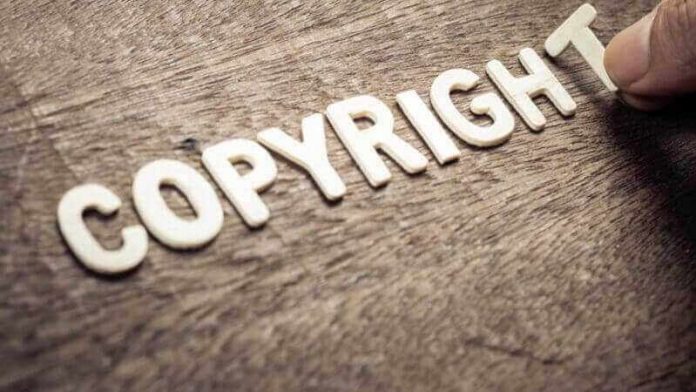This article is written by Niharika Tiwari. This article has been edited by Sonali (Associate, Lawsikho).
This article has been published by Sneha Mahawar.
Table of Contents
Introduction
If you are a fan of Taylor Swift (Defendant), I am sure you must be aware of the ongoing copyright infringement lawsuit on one of her biggest hits “Shake it Off”. The suit was filed by Sean Hall and Nathan Butler (Plaintiffs), the songwriters of 3LW’s 2001 track “Playas Gon’ Play” claiming that Swift copied elements from their song in her 2014 hit. The case was initially filed in 2017 which was dismissed on the ground that the lines for which the claim is made are “short phrases that lack the modicum of originality and modicum of creativity required for copyright protection.” However, Plaintiff appealed and now the case is pending before the Ninth Circuit Court of Appeals and is headed for a jury trial. This article would lay down a detailed legal analysis of both the songs as per the copyright law and also the validity of the Plaintiff’s claim.
The dispute
Hall & Butler claim that Swift copied elements from their song’s chorus and put them in the chorus of her song in the lines, “and the players gonna play, play, play, play play and the haters gonna hate, hate, hate, hate, hate”. Their song contains the lines “playas, they gonna play” and “haters, they gonna hate”. Initially, when the case was in the District Court, they claimed that the lyrics of their chorus were unique, original, and met the bar of minimal creativity and they are the ones who popularised these phrases. However, such a claim was rejected on the ground that the phrases are unoriginal and ‘too banal’ to be accorded copyright protection. On appeal, the Plaintiffs amended their claim and now their claim is based on the sequence and arrangement of the words in the lyrics of the chorus. They claim that such an arrangement is creative enough to be accorded copyright protection and that Swift has copied such elements in her song.
As the issue at hand concerns only the lyrical similarities, I will restrict my analysis to that aspect leaving other musical components like key, melody, tempo, harmony and chord progression.
How similar are the lyrics in each song
The only lyrics that are remotely similar to each other in both the songs feature the words “players” and “haters”.
Are these lyrics original or creative enough to be granted copyright protection? Usually, short phrases or lyrics are not subject to copyright protection the only exception being if the phrase is not common or is creative. However, in such cases, the level of creativity and the evidence to establish such creativity increases significantly. The perfect and most popular example of this would be the 1979 Federal district case, Brilliant v. W.B. Productions, Inc., where two phrases are in dispute, “I may not be totally perfect, but parts of me are excellent” and “I have abandoned my search for truth and am now looking for a good fantasy” were held to be protectable under copyright law. The Court adjudged that these phrases were concise, clever and culturally relevant, thereby satisfying the “creative” component of originality.
‘Players’ and ‘Haters’ are terms that have been used incessantly in American Pop culture and the Plaintiffs were not the first ones to come up with that. Some songs which use these terms have been listed below:
| SONGS USING PLAYER-HATER | SPECIFIC LYRICS |
| Hater Players by Black Star (1977) | later for the hater-players |
| Fool get a clue by Digital Underground (1996) | Players gonna play with who they want to play with |
| Dump, Bust, Blast by E-40 (1998) | Haters gonna hate |
| The Outsiders by Eric Church (2013) | Yeah, the player’s gonna play and a haters gonna hate |
| You Me Need by Vybz Kartel (2013) | Playas gonna play At least that’s what they sayHaters gonna hate (Let them hate) |
| Haters by TLC (2017) | Haters gonna hate People gonna say what they say |
| Beautiful by Leecee (2020) | Haters gonna hate Players gonna play We don’t care about what people say |
These are only some of the songs that use the common phrases “Players gonna play” and “haters gonna hate” that are disputed in this case. Numerous other songs use various versions of ‘haters’, ‘players’, and ‘what people say’ in the lyrics with similar sequences and arrangements. And just stating human behaviour in the lyrics does not even make it creative. Thus, these phrases are unoriginal with no creative expression whatsoever. The choruses of both the songs use unoriginal phrases just with a little structural change. While Swift’s chorus has a repetition of the words ‘players’ and ‘haters’ 5 times, Hall & Butler have inserted ‘they’ between ‘playas’ and ‘haters’ in the chorus. There is no element of originality or creativity here and both are essential for copyright protection.
Legal analysis
Copyright is a bundle of rights that protects the expression of original ideas. Needless to say, both parties have copyright over their songs. However, copyright does not protect short phrases especially if the phrases are short, not creative and unoriginal. To explain further, take the example of the phrase, “that’s what people say” from Swift’s Shake it Off itself. Frank Sinatra in “That’s Life”, recorded in 1966, sang “That’s life, that’s what people say”. In 2002, Lone Star Ridaz used the phrase, “sick beats” in their song, “SPM – City of Houston” which is used in Swift’s song as well. Thus, short phrases that are unoriginal are not subject to copyright protection.
As we can see apart from the lyrics “players gonna play” and “haters gonna hate”, the two songs are completely different in all the other aspects. Now, we shall analyse whether the lyrics in dispute are a subject matter of a copyright infringement lawsuit.
Basic principles of copyright law
Originality
If a work is an independent creation of the author and meets the basic requirement of the “modicum of creativity”, then the work is deemed to be original. It is pertinent to note here that originality is not synonymous with novelty. To be accorded the status of original work, the work need not be “new”. It could be an inspiration from some previous work and if the author adds a minimal amount of his own creativity to it, that particular work becomes his original creation.
Expression of idea
Only the creative expression of an idea is protected by copyright law. One cannot have a copyright over the idea itself. The reason behind this is that Copyright law incentivises creativity by offering the authors some kind of reward for their creative expression and its object is to promote such expression on a greater level. If copyright is granted over an idea, it will lead to monopolization of that idea and that is the opposite of what the law’s intention is. Therefore, only the creative expression of the idea is protected.
Fixation
Only when work is fixated on a stable tangible medium is when copyright granted for such work. For example, photography, painting, cinematograph film, etc.
These are the most crucial basic concepts revolving around the subject matter of copyright and are common to most jurisdictions across the world. We will be applying each of these principles to the instant case to analyze whether any copyright infringement claim is even possible.
Both the songs definitely are a creative expression of an idea fixed in a tangible medium and are original creations of the respective authors. But, as I discussed in detail in this article earlier, the lyrics in question are unoriginal and copyright law does not protect short phrases especially if they are unoriginal. With respect to other aspects of the song, the melody, the key, the whole composition, chord progression, key and beats, the songs differ substantially. And therefore, there can be no copyright infringement claim in the instant case in my opinion.
Progress
However, at this juncture, the motion for summary judgment has been denied by Michael Fitzgerald J. In Hall v. Swift, the main argument that the Plaintiffs put forth in the proceedings was that though the phrase in question might be unoriginal and the elements are in the public domain, their sequence and arrangement is unique and creative and therefore, protected by copyright law. And the reason for the denial of summary judgement by the Hon’ble judge in his words was, “there are still numerous factors, analyzed by Defendants’ same experts, that do not eliminate the possibility that there is still a genuine dispute as to the potential substantial similarity between the lyrics and their sequential structure as framed by Plaintiffs….. In other words, it is not proper for this Court to resolve on summary judgment what is essentially simply a battle of the experts.” Thus, the motion for summary judgement was denied as in the Hon’ble judge’s opinions, facts related to substantial similarity are still a dispute.
Now, let us analyse Plaintiff’s argument and whether it holds good. Plaintiff claims that the sequence and arrangement of the lyrics in their song is a creative expression and this particular expression has been copied by Swift. Let us do a comparative analysis of both the songs’ lyrics in question:
| HALL & BUTLER | SWIFT |
| Playas, they gonna play And haters, they gonna hate Ballers, they gonna ball Shot callers, they gonna call | Cause the players gonna play, play, play, play, play And the haters gonna hate, hate, hate, hate, hate Baby, I’m just gonna shake, shake, shake, shake, shake I shake it off, I shake it off Heartbreakers gonna break, break, break, break, break And the fakers gonna fake, fake, fake, fake, fake Baby, I’m just gonna shake, shake, shake, shake, shake I shake it off, I shake it off |
First, I have already established that the lyrics in question are unoriginal public domain phrases used by many artists in the American pop culture (another similar example in Pendleton v. Acuff-Rose Publications, Inc.). Now the only question that remains is whether Hall & Nathan’s arrangement of such public domain phrases is creative enough. Let us roughly translate what the lyrics convey:
Hall & Butler’s chorus
Players, they are going to play
And haters they are going to hate,
Ballers, they are going to ball,
Shot Callers, they are going to call
In my opinion, the arrangement and sequence of Plaintiff’s lyrics do not reach that low bar of a modicum of creativity. Here, I would like to draw an analogy to one of the things that copyright protection does not extend to – facts. However, if it is a compilation of facts and it is arranged in such a way as to reach that low bar of creativity, copyright protection might be accorded to it. But, as we have seen in the Feist case, the details in the telephone directory were arranged in alphabetical order, a most commonplace practice, and thus, copyright protection was not accorded. Similarly, in this case, one of the things that copyright protection does not extend to is short unoriginal phrases, but they can be a subject matter of copyright if arranged creatively and this is in question.
However, such an arrangement by Hall & Butler as I have established in the musical analysis section has been used in various versions by different artists in their songs. And just inserting “they” between ‘players’ and ‘haters’ does not make the lyrical arrangement creative enough to reach the bar of a modicum of creativity. And even if for a moment I consider that Plaintiff’s arrangement is a creative expression, Swift’s lyrical arrangement also then amounts to creative expression by that logic as the test of substantial similarity is not met. In Swift’s song the words ‘play’, ‘hate’, ‘shake’, ‘break’ and ‘fake’ with respect to their subjects in each line are repeated 5 times followed by the phrase “I shake it off” repeated twice. Thus, Plaintiff’s arrangement and Swift’s arrangement in their respective songs are substantially dissimilar.
But we need not even discuss substantial dissimilarity because the phrases as well as the sequence and arrangement of the words in those phrases are both unoriginal and are elements of the public domain [“Fool get a clue by Digital Underground (1996)”, “Dump, Bust, Blast by E-40 (1998)”]. And therefore, the copyright infringement claim of the Plaintiffs falls apart for this very reason.
Conclusion
In my opinion, the case shouldn’t head to a jury trial at all. And in light of the fundamental essence of copyright law coupled with well-established precedents, Swift is most probably going to win this case. However, these types of decisions set up bad examples for upcoming artists. The litigation process of a copyright infringement lawsuit is very expensive and time-consuming and such decisions are a hindrance in the creative journey of various artists which will be a concern for them in their efforts to establish their music careers. Copyright law intends to promote creativity and incentivise it, and the decisions in lawsuits should be taken keeping that objective in mind. Even legal and music experts have criticized this decision as a “bad decision” and one that “makes copyright law look absurd”. It would be really interesting to see how this case unfolds.
References
- Arica Inst., Inc. v. Palmer
- Gingg v. Twentieth Century Fox Film Corp
- Morrissey v. Proctor & Gamble Co., 379 F. 2d 675 (1st Cir. 1967)
- Pendleton v. Acuff-Rose Publications, Inc
Students of Lawsikho courses regularly produce writing assignments and work on practical exercises as a part of their coursework and develop themselves in real-life practical skills.
LawSikho has created a telegram group for exchanging legal knowledge, referrals, and various opportunities. You can click on this link and join:
Follow us on Instagram and subscribe to our YouTube channel for more amazing legal content.
 Serato DJ Crack 2025Serato DJ PRO Crack
Serato DJ Crack 2025Serato DJ PRO Crack












 Allow notifications
Allow notifications


